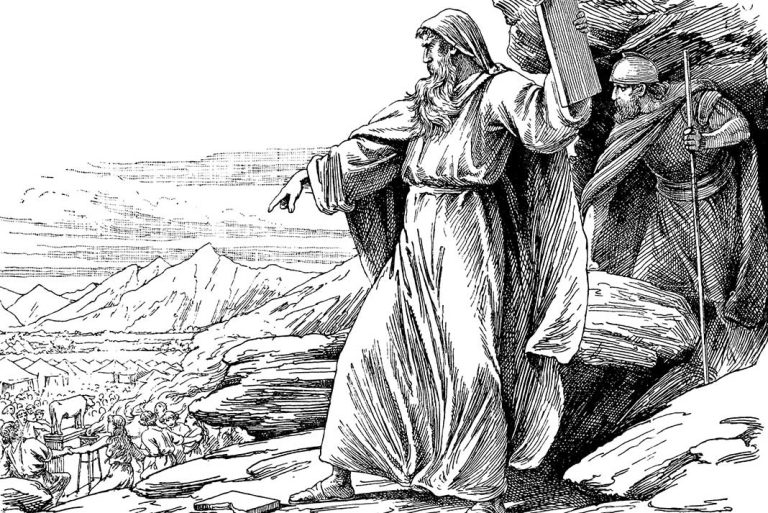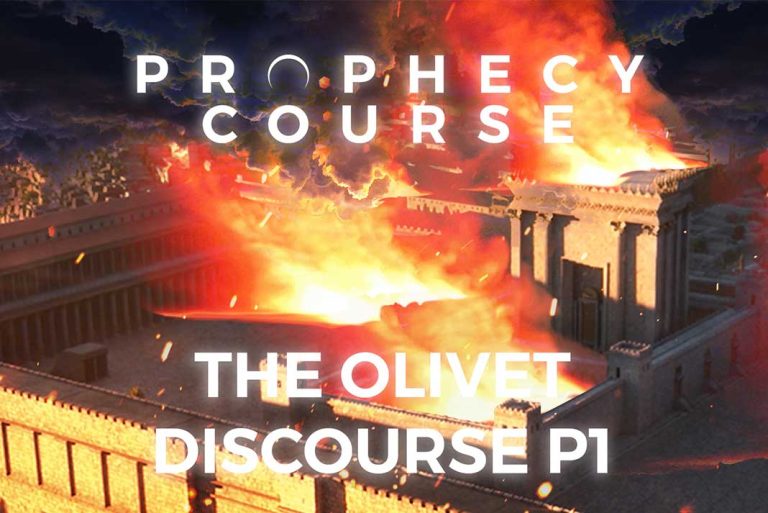There are a series of accounts of disciples encountering the risen Lord that, like Mary Magdalene in the John 20 account, did not recognize Jesus right away. In fact, in each of the accounts, it was a different stimulus that caused the disciple to finally know it was Him. In Mary’s case, it was when Jesus said her name, “Mary” in verse 16. She had originally thought Him to be the gardener even after he asked her why she was weeping. It is clear from this and other accounts of Mary that the relationship was a close and meaningful one to her. Jesus’s use of her name, not just the name, but the unique way he spoke it was so very familiar to her and caused a light to go off in her mind: this is not the gardener. It is Rabboni, my teacher.
Once she recognized Him, there was His command, “stop clinging to Me”. Scholars do not agree on the reason for this command. One thing is clear, Jesus had not yet ascended to His Father. We also notice that Jesus tells Mary to go to “My brethren”, not friends or other intimate terms. This signifies that the relationship with the Risen Jesus was to be different than before, thus “brethren”. The nature of an intimate relationship with the Risen Lord was to be much different than before, no longer physical, and His disciples needed to learn that. It would take the experiences of watching Jesus ascend to heaven from Mount Olivet (Acts 1:9), meeting in the upper room in anticipation of Pentecost (verses 13-14), and the moving of the Holy Spirit on that special day (Acts 2) to initiate that change.
My Lord and my God
Then, in the same chapter, there was Thomas, doubting Thomas. Jesus had visited with most of His disciples on a day when Thomas was not present. As his friends told Thomas about the Risen Lord with excitement, he admitted to them than this was just too difficult to believe. He would have to have the physical evidence or he could not accept it. When finally confronted directly with the Risen Lord, Jesus told him to get the proof he needed by putting his finger and hand in the wounds and this would be enough for Thomas to answer, “My Lord and my God”! Thomas could now acknowledge Jesus as Lord and God, a statement that he most likely had never made before. Then Jesus addresses us, future believers who have never had this opportunity to see yet could believe Jesus as Lord and God. Like the disciples, we must believe that Jesus is risen in order to recognize Him as Lord!
Burning hearts
And then there were the two disciples traveling on the road to Emmaus who had an experience with the Risen Lord in Luke 24. As Jesus begins walking with them, the account from Luke tells us in verse 16 that “their eyes were prevented from recognizing him” without any explanation as to why. The same event (we believe) covered by Mark in 16:12 says that he appeared “in a different form” so it appears He looked differently than they were used to. But according to Luke’s account, He was just a normal guy walking on the same road and they started this conversation about the events that had just taken place in Jerusalem. The disciples admitted that they had been hoping that Jesus was to be the one who “was going to redeem Israel” (verse 21). It was clear from their testimony that they did not yet believe that Jesus was the One who would redeem Israel. Since they had not yet fully grasped the events and that this was Jesus, He began to explain to them “the things concerning Himself in all the Scriptures” (verse 27).
And their response to His commentary was, “were not our hearts burning within us while He was speaking to us on the road” (verse 32). It wasn’t until they broke bread with Jesus that they finally recognize Him (verse 31). If we are to see Jesus as the Risen Lord, we must understand that Jesus Christ is the fulfillment of the Old Testament Scriptures. As Jeremiah specifies in Jeremiah 15:16, “Your words were found and I ate them, and Your words became for me a joy and the delight of my heart; for I have been called by Your name, O Lord God of hosts.” The Word of God, if understood accurately, becomes food for the believer. Jesus’s words in Matthew 4:4, “MAN SHALL NOT LIVE ON BREAD ALONE, BUT ON EVERY WORD THAT PROCEEDS OUT OF THE MOUTH OF GOD” are applicable. The Word of God is our spiritual food!
Recognizing the miraculous
Finally, we have the disciples fishing in the Sea of Galilee in John 21, something they had done many times before and Jesus appears on the beach. Knowing that they had not yet caught any fish, Jesus encouraged them to put their nets in a different place and “you will find a catch”. I’m sure this event was reminiscent to them of an earlier time found in Luke 5:4-7 where Jesus had instructed Peter to put down his nets in deep water for a great catch and it happened just as Jesus said. In John 14:11, “Believe Me that I am in the Father and the Father is in Me; otherwise believe because of the works themselves.” Our ability to fully understand that Jesus is the Risen Lord is tied to our experiences as Jesus has made Himself real in our lives through miraculous conclusions. He is the God of the impossible (Matthew 19:26) and He wants us to recognize Him this way.
Living for the Risen Lord
How we recognize the Risen Lord is addressed by Paul in 2Corinthians 5:14-17, that we recognize no one according to the flesh, not even Jesus. The apostle Paul wrote these words from personal experience, that he, as Saul of Tarsus and a contemporary of Jesus’s public ministry, did not recognize Jesus as Messiah until he had a personal experience with the Risen Lord in Acts 9:3-6. It took Saul of Tarsus’ confrontation with the Jesus of Nazareth for him to finally recognize the Risen Lord and become almost immediately commissioned as the apostle Paul. In the same way, Paul encourages believers to, “know Him in this way no longer”. The key to it is found in verse 15, “that they who live might no longer live for themselves, but for Him who died and rose again on their behalf”, the Risen Lord. In verse 17, “new things have come”.
The motive that causes a believer to choose to live for Jesus is defined for us by Paul in Galatians 2:20. Jesus’s personal love for the believer, as demonstrated by His death on our behalf (Romans 5:8), is the foundation of this relationship. This type of love is self-sacrificing yet a controlling love (2Corinthians 5:14) and it takes a real faith in this personal love of Jesus to bring one to this dynamic relationship where His priorities become the believer’s priorities. Any dramatic change in the depth of a relationship with Jesus can only happen in the light of a newfound appreciation of His personal love. In Romans 14:7-9, “For not one of us lives for himself, and not one dies for himself; for if we live, we live for the Lord, or if we die, we die for the Lord; therefore whether we live or die, we are the Lord’s. For to this end Christ died and lived again, that He might be Lord both of the dead and of the living.
Set your mind on God’s interests
Peter’s amazing response to Jesus when asked, “and who do you say that I am?” is noteworthy when Peter said, “you are the Christ, the Son of the living God” and Jesus acknowledged that flesh and blood did not reveal it to Peter, but the Father. Yet within a short period of time, Peter rebukes Jesus when He told the disciples He would need to suffer and die at the hands of the scribes and Pharisees, yet be raised on the third day (Matthew 16:21). In verse 23, we get the real reason behind Peter’s rebuke when Jesus points out to him that, “you are not setting your mind on God’s interest, but man’s”. The Greek word is phroneo and it has the meaning of being mindful of or devoted to according to Spiros Zodhiates. This passage demonstrates that man decides what interest upon which he is setting his mind. In one moment, Peter speaks the testimony of the Father and then the next, his own self-interest that Jesus could not leave the disciples behind. These are decisions of the will, the affections, and the conscience.
The Apostle Paul sums it up for us in Romans 8:5-6 (same Greek word) by comparing and contrasting two mindsets, the one on fleshly, earthly, and natural things verses the mind set on spiritual things. The natural, fleshly, earthy mindset ultimately results in death the spiritual mindset produces life and peace. In Philippians 3:18-20, Paul says, “For many walk, of whom I often told you, and now tell you even weeping, that they are enemies of the cross of Christ, whose end is destruction, whose god is their appetite, and whose glory is in their shame, who set their minds on earthly things. For our citizenship is in heaven, from which also we eagerly wait for a Savior, the Lord Jesus Christ.” This fleshly mindset is an enemy of the cross since it never recognizes the greatest work of God on our behalf, Christ’s death and resurrection on our behalf which is the evidence of our heavenly citizenship. This new citizenship produces a new mindset with the believe living in great expectation, eagerly awaiting the Savior.
Upward call
Paul acknowledges in his pastoral epistles that the work of the Lord has purchased for us a new position, seated above, in heavenly places (Ephesians 2:6) and that this position raises us up by faith in God’s work: In Colossians 2:12, “having been buried with Him in baptism, in which you were also raised up with Him through faith in the working of God, who raised Him from the dead.” This position is an ascending position and brings with it an ascending experience in God. Paul says in Philippians 3:14, “I press on toward the goal for the prize of the upward call of God in Christ Jesus.” This new mindset keeps the believer pressing on to the upward call of God which is the ultimate prize this life has to offer.
The Risen Lord ordains a path for each of us to follow which Paul defines as “in Him’, or “in Christ”, etc. This path is a place to walk and it establishes us in the faith and produces gratitude. Paul warns us of the war that is constantly trying to arrest our minds from the life and peace of the spiritual mindset. In Colossians 2:8-10, the god of this world uses philosophies and empty deceptions according to the traditions of men to keep men attached to worldly interests so that he never comes to know the fullness of God found in a spiritual relationship with the Lord Jesus Christ.
Fellowship in suffering
I believe Philippians 3:10 to be Paul’s signature statement about his relationship with God, that it was about knowing Him. This Greek word, ginosko has the sense of coming to know as a process, through experience. Paul was saying that this coming to know Jesus is the process of experiencing the power of His resurrection and the fellowship of His suffering. Both experiences are essential for the believer to truly know God in all of His fullness. Before Easter Sunday, there was Good Friday; before the resurrection, there was His suffering. To experience the Risen Lord, we must identify with the One who suffered and this process in being conformed to His death. Suffering then becomes an integral part of a spirit-filled believer’s life.
“but if anyone suffers as a Christian, he is not to be ashamed, but is to glorify God in this name. For it is time for judgment to begin with the household of God; and if it begins with us first, what will be the outcome for those who do not obey the gospel of God? AND IF IT IS WITH DIFFICULTY THAT THE RIGHTEOUS IS SAVED, WHAT WILL BECOME OF THE GODLESS MAN AND THE SINNER? Therefore, those also who suffer according to the will of God shall entrust their souls to a faithful Creator in doing what is right.” (1 Peter 4:16-19)
The greatest evidence
The greatest evidence that a disciple has experienced the Risen Lord is his willingness to suffer. When we look at the first century disciples after Pentecost, we see men who were willing to suffer for their faith. Fox’s Book of Martyrs is a sobering picture of what happened to men and women of faith who were willing to obey to the point of death. Below are some excerpts from the first chapter of this great chronicle:
Stephen – Acts 7 gives us a description of Stephen’s execution by stoning and it began a period when about two thousand Christians, with Nicanor, one of the seven deacons, suffered martyrdom during the “persecution that arose about Stephen.”
James the Great – one of the Son’s of Zebedee and the elder brother of the Apostle John. The account given us by an eminent primitive writer, Clemens Alexandrinus, ought not to be overlooked; that, as James was led to the place of martyrdom, his accuser was brought to repent of his conduct by the apostle’s extraordinary courage and undauntedness, and fell down at his feet to request his pardon, professing himself a Christian.
Philip – was born at Bethsaida, in Galilee and was first called by the name of “disciple.” He labored diligently in Upper Asia, and suffered martyrdom at Heliopolis, in Phrygia. He was scourged, thrown into prison, and afterwards crucified, A.D. 54.
Matthew – whose occupation was that of a toll-gatherer, was born at Nazareth. He wrote his gospel in Hebrew, which was afterwards translated into Greek by James the Less. The scene of his labors was Parthia, and Ethiopia, in which latter country he suffered martyrdom, being slain with a halberd in the city of Nadabah, A.D. 60.
James the Less – the half-brother of Jesus. He was elected to the oversight of the churches of Jerusalem; and was the author of the Epistle ascribed to James in the sacred canon. At the age of ninety-four he was beat and stoned by the Jews; and finally had his brains dashed out with a fuller’s club.
Matthias – Of whom less is known than of most of the other disciples, was elected to fill the vacant place of Judas. He was stoned at Jerusalem and then beheaded.
Andrew – Was the brother of Peter. He preached the gospel to many Asiatic nations; but on his arrival at Edessa he was taken and crucified on a cross, the two ends of which were fixed transversely in the ground. Hence the derivation of the term, St. Andrew’s Cross.
St. Mark – was born of Jewish parents of the tribe of Levi. He is supposed to have been converted to Christianity by Peter, whom he served as an amanuensis, and under whose inspection he wrote his Gospel in the Greek language. Mark was dragged to pieces by the people of Alexandria, at the great solemnity of Serapis their idol, ending his life under their merciless hands.
Peter – among many other saints, the blessed apostle Peter was condemned to death, and crucified, as some do write, at Rome. Jerome saith that he was crucified, his head being down and his feet upward, himself so requiring, because he was (he said) unworthy to be crucified after the same form and manner as the Lord was.
Paul – the apostle, who before was called Saul, after his great travail and unspeakable labors in promoting the Gospel of Christ, suffered also in this first persecution under Nero. Abdias, declareth that under his execution Nero sent two of his esquires, Ferega and Parthemius, to bring him word of his death. They, coming to Paul instructing the people, desired him to pray for them, that they might believe; who told them that shortly after they should believe and be baptized at His sepulcher. This done, the soldiers came and led him out of the city to the place of execution, where he, after his prayers made, gave his neck to the sword.
Jude – the brother of James, was commonly called Thaddeus. He was crucified at Edessa, A.D. 72.
Bartholomew – preached in several countries, and having translated the Gospel of Matthew into the language of India, he propagated it in that country. He was at length cruelly beaten and then crucified by the impatient idolaters.
Thomas – called Didymus, preached the Gospel in Parthia and India, where exciting the rage of the pagan priests, he was martyred by being thrust through with a spear.
Luke – the evangelist, was the author of the Gospel which goes under his name. He travelled with Paul through various countries, and is supposed to have been hanged on an olive tree by the idolatrous priests of Greece.
John – the “beloved disciple,” was brother to James the Great. The churches of Smyrna, Pergamos, Sardis, Philadelphia, Laodicea, and Thyatira, were founded by him. From Ephesus he was ordered to be sent to Rome, where it is affirmed he was cast into a cauldron of boiling oil. He escaped by miracle, without injury. Domitian afterwards banished him to the Isle of Patmos, where he wrote the Book of Revelation. Nerva, the successor of Domitian, recalled him. He was the only apostle who escaped a violent death.
Fixing our eyes on Him
“fixing our eyes on Jesus, the author and perfecter of faith, who for the joy set before Him endured the cross, despising the shame, and has sat down at the right hand of the throne of God. For consider Him who has endured such hostility by sinners against Himself, so that you will not grow weary and lose heart.” (Hebrews 12:2-3)









